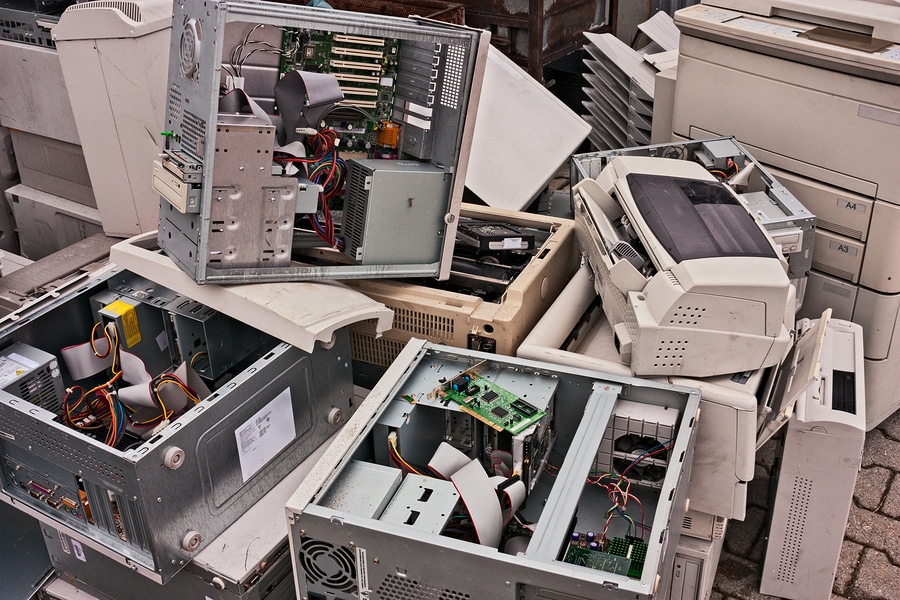What Should You be Doing with Old Computers and Hard Drives?

The turnover on digital devices for the average company can be astronomical. Even with a solid plan in place for upgrading technology at a reasonable pace, you may have no choice but to do minor upgrades regularly and major overhauls of equipment every few years if you want to remain competitive.
This can leave you with stockpiles of outdated devices taking up space and gathering dust in closets and other storage areas. Even when locked up, these devices pose a threat for data theft that could compromise both company and customer privacy.
You may not have the resources to diligently monitor your inventory of old devices, so it would be no surprise if some went missing due to internal misappropriation. A break-in and theft of unwiped devices could also leave you in serious danger of data breach and identity theft, along with the many consequences that follow.
It’s easy to forget about these old devices when you’re consumed with onboarding new systems and equipment, but if you want to remain in compliance with applicable consumer privacy laws, you need to dispose of them properly. The question is: what should you do with old computers, hard drives, and other electronic devices?
Create Disposal Policies and Procedures
The first thing you need to do is make sure you have standards and practices set forth so that all employees understand how to properly dispose of devices and the confidential data they contain. This generally means checking devices in for secure storage and tracking on-site so that pick-up by your trusted ITAD service provider can be scheduled expediently.
Find a Suitable ITAD Service Provider
You’ll want to find a certified ITAD provider that holds R2, e-Stewards, and other certifications that speak to the high standards for destruction and recycling they uphold. It’s important to have a system in place that ensures devices are tracked, inventoried, and securely removed from your facility in a timely manner, so that they don’t fall through the cracks and pose a risk of either internal or external theft.
Security and transparency are your highest concerns when it comes to choosing the right partner to dispose of your hard drives, computers, and other electronics. Many businesses like to work with a company that offers on-site destruction. Industrial equipment ensures compliance with applicable privacy laws, and business owners have the opportunity to verify destruction, watching as devices are collected and destroyed on-site before remains are securely hauled away for recycling.
With transparent tracking of devices by serial number, such as through a 24/7 client portal, you may feel safe allowing your ITAD partner to transport devices to a secure facility for shredding and recycling. You’ll simply have to decide which method of disposal you prefer.
Do Not Attempt to Destroy Devices on Your Own
Can you follow online DIY destruction tutorials to drive nails through hard drives or melt them in acid baths? Well, sure. You could also try junking your old car by dropping heavy rocks on it, but this is hardly advisable. DIY hard drive destruction has not only proven terribly ineffective when it comes to actually destroying data, but it could be hazardous to anyone attempting it.
You’re much better off partnering with the professionals at a certified ITAD service provider like SEAM that delivers transparent and secure processes for shredding and recycling hard drives. Contact SEAM today at 605-274-SEAM (7326) to get your Sioux Falls, SD business on track for safe and effective disposal of your computers and hard drives in keeping with privacy and environmental laws.
SEAM provides IT recycling and data destruction services including onsite shredding and hard drive wiping to South Dakota, North Dakota, Minnesota, Iowa, and Nebraska.
Schedule a pickup or contact us for more information.





